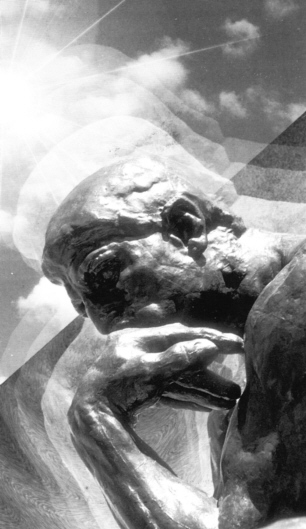If the events of recent weeks have demonstrated anything, it is that the Enlightenment ideals of reason and rationality cannot hold sway over the realities of belief and emotional irrationality. But that always was always a Hobson’s choice.
 Is it true, as Rebecca Newberger Goldstein has stated, that “against the tendency toward nationalistic and sectarian mindsets we have no defense but the relentless application of reason?” If so, there’s no hope for the human race.
Is it true, as Rebecca Newberger Goldstein has stated, that “against the tendency toward nationalistic and sectarian mindsets we have no defense but the relentless application of reason?” If so, there’s no hope for the human race.
Belief and reason are actually two sides of the same coin–the irrationality and rationality of the human mind. Reason is obviously preferable to unreason, but “the relentless application of reason” is a wholly inadequate response to the crisis facing humankind.
No less a philosopher than Spinoza saw reason as “our only hope and redemption,” as Goldstein puts it in extolling his “project of radical rationality.” Nonetheless, there’s a sad irony in the congruence between the religionist’s faith in belief and the secularist’s faith in reason.
The philosophical bulwark of reason, running from Spinoza through Locke and Jefferson, has been broken. If reasonable people are not to be caught in decades of crossfire between the fundamentalist Christianity and fundamentalist Islam, and between the tribalism of nationalism and the reality of the global society, then ordinary human beings will have to respond with more than mere reason.
Part of the dilemma is that few thinking people make the distinction between belief and faith, and between religion and religiosity. Many assume faith means conviction without evidence, even conviction in the face of opposing evidence.
But there is another meaning to the word faith: the feeling, with doubt, that life is more than rationalistic materialism, more than what we can wrap our minds around. To be sure, that feeling is getting harder and harder to sustain in this world, but it’s essential to the truly religious mind.
Organized religions represent the codification and destruction of the insight that inspired them. But there is no conflict between faith in the deeper sense of the word and reason. There is simply a natural tension (not conflict) between the scientific and religious minds.
Indeed, the scientific mind and religious mind represent different perspectives and different emphases in the human mind, heart and spirit. In a healthy individual, they go together.
Einstein said, “Science can only be created by those who are thoroughly imbued with the aspiration towards truth and understanding. This source of feeling, however, springs from the sphere of religion.” Surprisingly, he added, “I assert that the cosmic religious experience is the strongest and noblest force behind scientific research.”
Insight belongs exclusively to neither the scientific mind or to the religious mind; it is the essence of both. Science without insight is a lifeless enterprise of accumulating knowledge; religiosity without insight is a lifeless enterprise of accumulating theology.
Insight does not serve simply epistemological functions. It is not just a handmaiden of knowledge. Rather, insight flows from and serves a higher purpose than knowledge.
The scientific mind makes the unobservable known; the religious mind makes the unknown observable. Therefore, while knowledge is the raison  d’être of the scientific mind, the known is an impediment to the religious mind.
d’être of the scientific mind, the known is an impediment to the religious mind.
Both belief and reason are products of thought. Therefore it’s the awakening of insight, not the application of reason, that is the way ahead for the individual and humankind.
Awakening the human brain’s capacity for insight to its fullest goes beyond creativity in all its forms. Insight unites the mind and heart in timeless learning and liberation through direct perception and understanding.
The flash of insight is irreducibly holistic and pre-verbal. But that pertains to insights, not insight per se. One can have an insight into anything, and people do, every day. But the state of mystical insight is the completely silent, timeless awareness of the underlying actuality of life, death, the universe and God.
The religious mind does not presuppose a supernatural realm that either supersedes or is separate from the natural world. Nor does it deny, in Einstein’s words, that “the regulations valid for the world of existence are rational.”
Our human capacity, using reason and evidence, to discover, formulate and convey natural laws is essential. It’s just not primacy. The religious mind, which humbly sees the limits of reason, conceptualization, knowledge and thought, is first.
Only a silent mind, having set aside its useful knowledge and emptied its useless memories, can perceive and receive insight into the ineffable intelligence imbuing and underlying the cosmos.
Martin LeFevre

